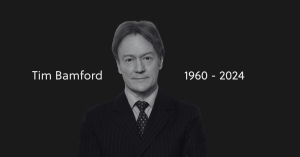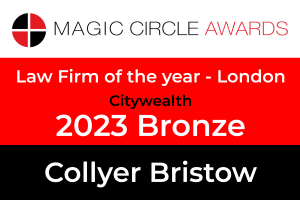- James Austen
Partner
- Jean-Martin Louw
Associate

News
HUNDREDS OF THOUSANDS OF TAXPAYERS TO BENEFIT AS HMRC LOSES LANDMARK CASE CHALLENGING HIGH INCOME CHILD BENEFIT CHARGE
MAKE AN ENQUIRY: More information on the implications of this decision can be found HERE. Further details will follow, so please monitor our website for the latest updates.
2 minute read
Published 1 July 2021
Summary:
- HMRC has lost its Upper Tribunal appeal – on every point – in Jason Wilkes’s leading case on the controversial High Income Child Benefit Charge (the HICBC)
- The outcome should benefit hundreds of thousands of taxpayers whose assessments to HICBC were made by Discovery Assessments
- The decision means that HMRC cannot issue Discovery Assessments to levy the HICBC if the person liable has not filed a Self-Assessment (SA) tax return
- It means that any Discovery Assessments issued in those circumstances are susceptible to challenge
further information:
The Upper Tribunal has handed down its decision in HMRC’s appeal in the leading HICBC case (HMRC -v- Wilkes [2021] UKUT 0150 (TCC)). In a binding judgment, the Upper Tribunal has decided that HMRC may not impose the HICBC by means of “Discovery Assessments” where the individual liable to the charge did not file a SA tax return. As HMRC has lost this appeal, it means they were wrong to impose the HICBC by Discovery Assessments on hundreds of thousands of UK taxpayers subject to the HICBC but not filing SA tax returns.
The HICBC was introduced in 2013. Despite being termed a ‘high income’ charge, since 6 April 2021 it has affected wholly basic-rate taxpayers. It is intended to claw back Child Benefit payments from couples where one partner’s “Adjusted New Income” for tax purposes exceeds £50,000. Mrs Wilkes claimed Child Benefit, yet it was Mr Wilkes that became liable to the HICBC for the tax years 2014-17. In common with many taxpayers in his position, he was unaware of it at the time. HMRC wrote to Mr Wilkes in November 2018, informing him that he might be liable to pay the HICBC. After checking the position, Mr Wilkes notified HMRC that he was indeed liable. At that point, HMRC issued Mr Wilkes with Discovery Assessments for unpaid tax, but did not seek to impose penalties on him (recognising that Mr Wilkes had a “reasonable excuse” for not paying the HICBC at the time).
Mr Wilkes (then represented by his wife, Mrs Samantha Wilkes) successfully appealed against the Assessments in the First-tier Tribunal (FTT). The Upper Tribunal has now confirmed the decision of the FTT: HMRC had no power to impose the charge on Mr Wilkes by means of Discovery Assessments.
As a result (and subject to a further appeal or a retrospective change in the law), HMRC never had power to issue Discovery Assessments for the HICBC to taxpayers who had not submitted SA Tax Returns – and therefore those Discovery Assessments issued by HMRC were invalid. It is not yet known precisely how many Discovery Assessments HMRC has issued to individuals in circumstances similar to those of Mr Wilkes. In principle, none should survive this judgment. Affected taxpayers will now be looking to HMRC to withdraw existing assessments and/or seeking reimbursement.
Commenting on the Upper Tribunal’s decision, James Austen, Partner and Head of Tax Disputes at Collyer Bristow LLP, acting for Mr Wilkes, said:
“I have been delighted to support Jason and Sam Wilkes in this appeal, and the outcome is a wonderful vindication of their case. The Upper Tribunal’s decision comprehensively overturns any argument that HMRC can issue Discovery Assessments in HICBC cases where taxpayers have not been filing self-assessment tax returns. Hundreds of thousands of taxpayers who have been anxiously awaiting this decision will be elated, and one hopes that HMRC will swiftly reimburse those who have been wrongly charged. As in Jason’s case, HMRC has resorted to Discovery Assessments almost by default for far too long: this judgment will hopefully cause them to think more carefully about their proper use in future.”
NOTES TO EDITORS:
- James Austen, Partner and Head of Tax Disputes, and Jean-Martin Louw, Associate, both of Collyer Bristow LLP, represented Mr Wilkes pro bono in this appeal.
- Collyer Bristow LLP is a leading central London law firm which advises international and domestic clients including businesses, wealthy individuals & families, and entrepreneurs. The firm has particular expertise in advising private clients about their tax and estate planning, and the Tax Disputes group regularly deals with HMRC enquiries and litigation.
- Barristers Richard Vallat QC and Marika Lemos (of Pump Court Tax Chambers and Devereux Chambers respectively) presented the case for Mr Wilkes pro bono.
- The Upper Tribunal (Tax and Chancery Chamber) hears appeals from the FTT (Tax Chamber) and its decisions set legally binding precedent.
- All press enquiries should be made in the first instance to Liam McCafferty, Byfield Consultancy: liam@byfieldconsultancy.com / (0)20 7092 3994
News
HUNDREDS OF THOUSANDS OF TAXPAYERS TO BENEFIT AS HMRC LOSES LANDMARK CASE CHALLENGING HIGH INCOME CHILD BENEFIT CHARGE
MAKE AN ENQUIRY: More information on the implications of this decision can be found HERE. Further details will follow, so please monitor our website for the latest updates.
Published 1 July 2021
Key Contacts
Summary:
- HMRC has lost its Upper Tribunal appeal – on every point – in Jason Wilkes’s leading case on the controversial High Income Child Benefit Charge (the HICBC)
- The outcome should benefit hundreds of thousands of taxpayers whose assessments to HICBC were made by Discovery Assessments
- The decision means that HMRC cannot issue Discovery Assessments to levy the HICBC if the person liable has not filed a Self-Assessment (SA) tax return
- It means that any Discovery Assessments issued in those circumstances are susceptible to challenge
further information:
The Upper Tribunal has handed down its decision in HMRC’s appeal in the leading HICBC case (HMRC -v- Wilkes [2021] UKUT 0150 (TCC)). In a binding judgment, the Upper Tribunal has decided that HMRC may not impose the HICBC by means of “Discovery Assessments” where the individual liable to the charge did not file a SA tax return. As HMRC has lost this appeal, it means they were wrong to impose the HICBC by Discovery Assessments on hundreds of thousands of UK taxpayers subject to the HICBC but not filing SA tax returns.
The HICBC was introduced in 2013. Despite being termed a ‘high income’ charge, since 6 April 2021 it has affected wholly basic-rate taxpayers. It is intended to claw back Child Benefit payments from couples where one partner’s “Adjusted New Income” for tax purposes exceeds £50,000. Mrs Wilkes claimed Child Benefit, yet it was Mr Wilkes that became liable to the HICBC for the tax years 2014-17. In common with many taxpayers in his position, he was unaware of it at the time. HMRC wrote to Mr Wilkes in November 2018, informing him that he might be liable to pay the HICBC. After checking the position, Mr Wilkes notified HMRC that he was indeed liable. At that point, HMRC issued Mr Wilkes with Discovery Assessments for unpaid tax, but did not seek to impose penalties on him (recognising that Mr Wilkes had a “reasonable excuse” for not paying the HICBC at the time).
Mr Wilkes (then represented by his wife, Mrs Samantha Wilkes) successfully appealed against the Assessments in the First-tier Tribunal (FTT). The Upper Tribunal has now confirmed the decision of the FTT: HMRC had no power to impose the charge on Mr Wilkes by means of Discovery Assessments.
As a result (and subject to a further appeal or a retrospective change in the law), HMRC never had power to issue Discovery Assessments for the HICBC to taxpayers who had not submitted SA Tax Returns – and therefore those Discovery Assessments issued by HMRC were invalid. It is not yet known precisely how many Discovery Assessments HMRC has issued to individuals in circumstances similar to those of Mr Wilkes. In principle, none should survive this judgment. Affected taxpayers will now be looking to HMRC to withdraw existing assessments and/or seeking reimbursement.
Commenting on the Upper Tribunal’s decision, James Austen, Partner and Head of Tax Disputes at Collyer Bristow LLP, acting for Mr Wilkes, said:
“I have been delighted to support Jason and Sam Wilkes in this appeal, and the outcome is a wonderful vindication of their case. The Upper Tribunal’s decision comprehensively overturns any argument that HMRC can issue Discovery Assessments in HICBC cases where taxpayers have not been filing self-assessment tax returns. Hundreds of thousands of taxpayers who have been anxiously awaiting this decision will be elated, and one hopes that HMRC will swiftly reimburse those who have been wrongly charged. As in Jason’s case, HMRC has resorted to Discovery Assessments almost by default for far too long: this judgment will hopefully cause them to think more carefully about their proper use in future.”
NOTES TO EDITORS:
- James Austen, Partner and Head of Tax Disputes, and Jean-Martin Louw, Associate, both of Collyer Bristow LLP, represented Mr Wilkes pro bono in this appeal.
- Collyer Bristow LLP is a leading central London law firm which advises international and domestic clients including businesses, wealthy individuals & families, and entrepreneurs. The firm has particular expertise in advising private clients about their tax and estate planning, and the Tax Disputes group regularly deals with HMRC enquiries and litigation.
- Barristers Richard Vallat QC and Marika Lemos (of Pump Court Tax Chambers and Devereux Chambers respectively) presented the case for Mr Wilkes pro bono.
- The Upper Tribunal (Tax and Chancery Chamber) hears appeals from the FTT (Tax Chamber) and its decisions set legally binding precedent.
- All press enquiries should be made in the first instance to Liam McCafferty, Byfield Consultancy: liam@byfieldconsultancy.com / (0)20 7092 3994
Key Contacts
- James Austen
Partner
- Jean-Martin Louw
Associate
Need some more information? Make an enquiry below.
Subscribe
Please add your details and your areas of interest below
Article contributors
James
AustenPartner
Specialising in UK trusts, tax & estate planning, Private wealth and Tax disputes & investigationsJean-Martin
LouwAssociate
Specialising in Commercial disputes, Banking & financial disputes, Commercial arbitration and Financial regulatory
Enjoy reading our articles? why not subscribe to notifications so you’ll never miss one?
Subscribe to our articlesMessage us on WhatsApp (calling not available)
Please note that Collyer Bristow provides this service during office hours for general information and enquiries only and that no legal or other professional advice will be provided over the WhatsApp platform. Please also note that if you choose to use this platform your personal data is likely to be processed outside the UK and EEA, including in the US. Appropriate legal or other professional opinion should be taken before taking or omitting to take any action in respect of any specific problem. Collyer Bristow LLP accepts no liability for any loss or damage which may arise from reliance on information provided. All information will be deleted immediately upon completion of a conversation.
Close































